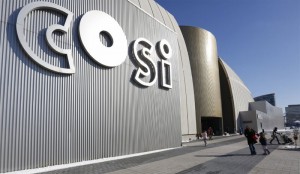The goal of this project is to connect with the university, and to learn about what life is like towards the end of university life. In order to do this, three interviews were conducted. The first interview was with an upperclassman at the university, in this case, John Coffey. John is a senior in the Chemical Engineering major and a resident advisor in Park-Stradley Hall. The next interview was with a graduate student. This graduate student is David Palzer, a teaching assistant for the computer science and engineering 1223 class. David is working on his third masters degree. Finally, the third interview was James Cogdell, a mathematics professor and researcher here at The Ohio State University focusing in number theory.
A variety of methods were used to find the subjects of the interviews. The upperclassman was chosen as he is easily accessible, and he has taken a path through Ohio State similar to the one that I wish to pursue, including becoming a resident advisor. The graduate student I found through my computer science class, and he was chosen due to his extensive experience with graduate education, specifically in Computer Science. Lastly, I found professor Cogdell through his research, specifically a few papers that he wrote last year about L-Functions and number theory, a branch of mathematics that is extremely interesting to me.
For the upperclassman interview, the questions were focused on developing discussion about how to get involved on campus, how to find a niche and passion that can carry into a career, how to become and be a successful resident advisor, and how to be successful in classes. Getting involved on campus has not been too difficult for me so far, as I found a spot on the club rowing team early on, but John’s advice was helpful nonetheless. He explained how he got involved through connections that he had made in high school, and by locating clubs and organizations on campus that are similar to the ones he enjoyed in high school. He also explained just how important this is, in fact, he said the most influential class he has taken is Men’s Glee Club because the singing keeps him grounded, and acts as a stress reliever. Slowly, I am noticing this in my rowing. The days where I do not have rowing are the days when I feel the most stressed and overworked. The physical activity, mental strain, and camaraderie are extremely important in keeping my sanity. I also learned that study habits are too different from person to person for his to be helpful for me, but he had some good suggestions.
The interview with David, the graduate student, was perhaps the most useful. Our conversation mostly covered what research is like for Computer Science and how to make the most out of graduate school. Especially because of the route I want to take, a Mathematics major and Computer Science minor in undergraduate with a Masters in Computer Science, I found his insights extremely useful, and he actually sold me on that path, explaining why it would be useful for me. David already has two Master’s Degrees from Washington University and Western Washington University, so he is well acquainted with graduate education. He explained that majoring in Mathematics is beneficial for a Computer Science Masters, as it will allow me to easily focus in something like cryptography or algorithms. Both of these topics interest me greatly, so his explanation was helpful. David also told me that he believes all graduate education should be free as the salary difference between undergraduate education and a Master’s Degree is only $10,000, much less than the education costs. He recommended either trying to get a fellowship, or becoming a research assistant or teacher’s assistant. Finally, we discussed undergraduate research and how important it will be moving forward. It will provide a good base when applying to graduate school, and as I will do research in graduate school, the experience will be incredibly important.
Prior to the final interview, I had to find and read a few of Professor Cogdell’s essays. To do this, I looked at the mathematics department page, and found a current professor that does research in number theory, my favorite branch of mathematics. Then, I used the University’s library webpage to locate a database where I could find a few of his papers, and searched his research on there. Then, I skimmed the titles, picked out two, and read their respective introductions, conclusions, and abstracts. Research articles can be extremely useful, but for freshmen in college, they are also very difficult to understand and read effectively. While the articles are almost certainly factual and true, the articles can be nearly impossible to read for undergraduate students due to their complexity. Especially in mathematics and computer science, if the reader is not a graduate student, or very far along in their studies, it becomes difficult to understand anything.
The final interview was with James Cogdell, a mathematics professor. This interview was focused more on the articles that I read, and not so much on undergraduate research. I learned a great deal about L-Functions and their history, and I learned even more about how research in mathematics is conducted. Typically, this research involves researchers linking older concepts and building off of them; oftentimes developing entirely new concepts to link old ideas. The only thing I learned about undergraduate research was who I could contact to get involved, and that professor Cogdell does not use any undergraduate assistants.
Overall, this assignment was a positive experience. Through it, I developed a more solid plan to go through college and graduate school, and learned how to connect with different resources at the university. While it was not easy, I feel as though it was an important experience, and it helped me develop my knowledge of the university, and how to utilize it for my career.
